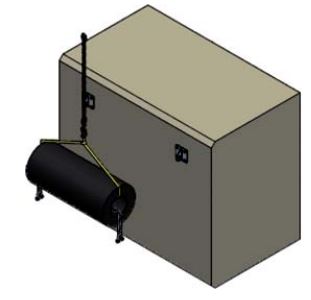It is essential that the anchor bolts are accurately located prior to installation. There are there main types of installation:
1 New concrete with cast in anchors
2 Steel structures with bolted connections
3 Existing concrete with resin anchors
Whichever type of installation you have, an anchor bolt template will be the most accurate method of locating anchors either in groups or combination. A template should be requested at the time of order enquiry.
1.Chain plate attachment
Prior to installing cylindrical fender, it is advisable that the ancillary components such as chains brackets are installed.
2.Preparation of fender
Prior to unloading of the fender components, it is advisable to prepare a suitable hard, flat surface to lay out the cylindrical rubber fender. Cylindrical rubber Fender can take up quite a large area and it is worth considering this beforehand to allow access for cranes and personnel.

3.Sling attachment for lifting
When ready, a sling can be used to lift cylindrical rubber fender, always check the weight before commencing.

4.Lifting of fender
For easy of installation, the support chain or internal bar can be located in the bore of cylindrical rubber fender to simplify final assembly.
Ensure that the chain will not drop or fall out during lifting by restraining it.

5. Fender attachment
Before attachment of the cylindrical fender, always ensure that adequate and safe access has been provide for all instances including inter tidal. Care should be taken when lifting the cylindrical fender into position to avoid damage to the rubber.

6. It is recommended that the carne should support the fender weight prior to fitting of the fender chains as this will make it easier to attach the chains. After the chains have been attached the crane can release, the load and the sling can be removed.
